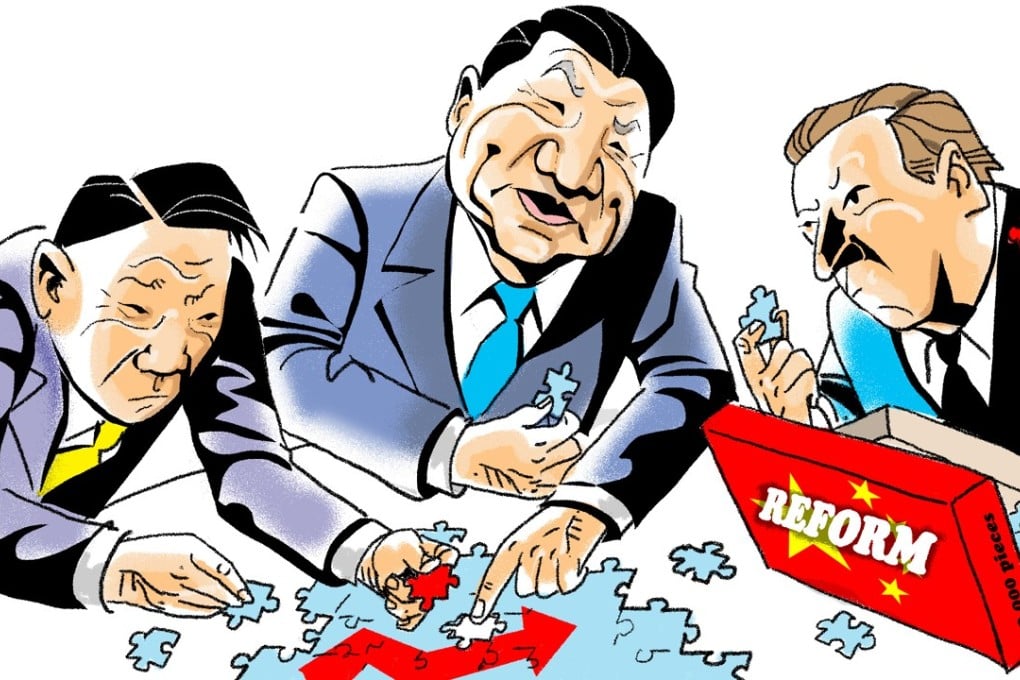Did the US play a role in China’s long-term market reform plans? Wait for the policy details
Victoria Ruan says a clearer picture of China’s long-term economic reform blueprint, which may have been formulated in anticipation of tough US trade action, will emerge only when leaders lay out annual policy in December

Starting next year, China will also adopt a unified negative-list system for the whole country, meaning foreign investors – in theory – would enjoy equal treatment with domestic players, except in fields restricted by the list.
Xi Jinping’s economic point man suggests ex-US treasury chief read this book
And, the government has pledged to reform the pricing mechanism for items ranging from natural gas to agricultural products and utility fees by 2020. Echoing these plans, Vice-Premier Wang Yang wrote a lengthy commentary in the People’s Daily, calling for “forming a new pattern of comprehensive opening up of the market”. Wang emphasised that this opening up “isn’t a tactic of expediency” but a long-term strategy.
